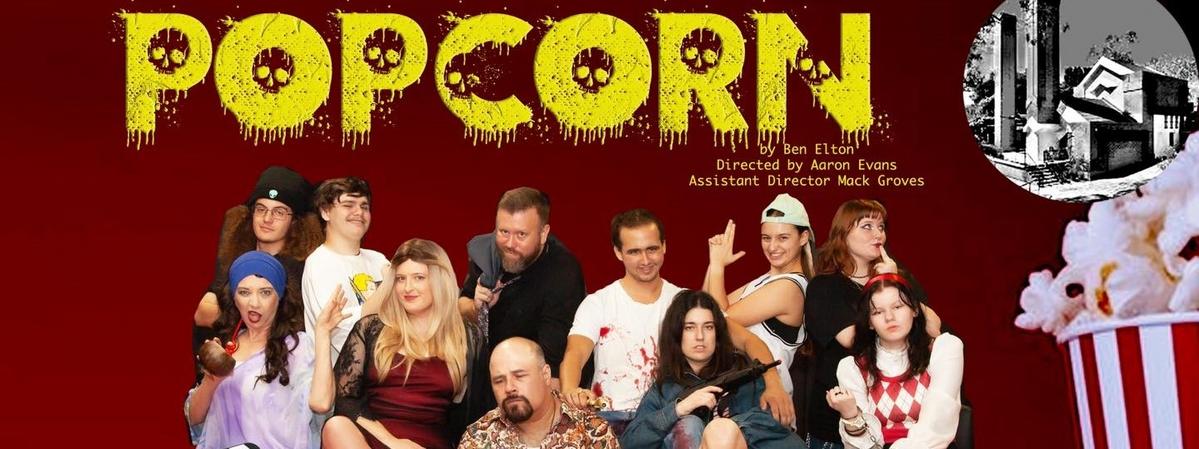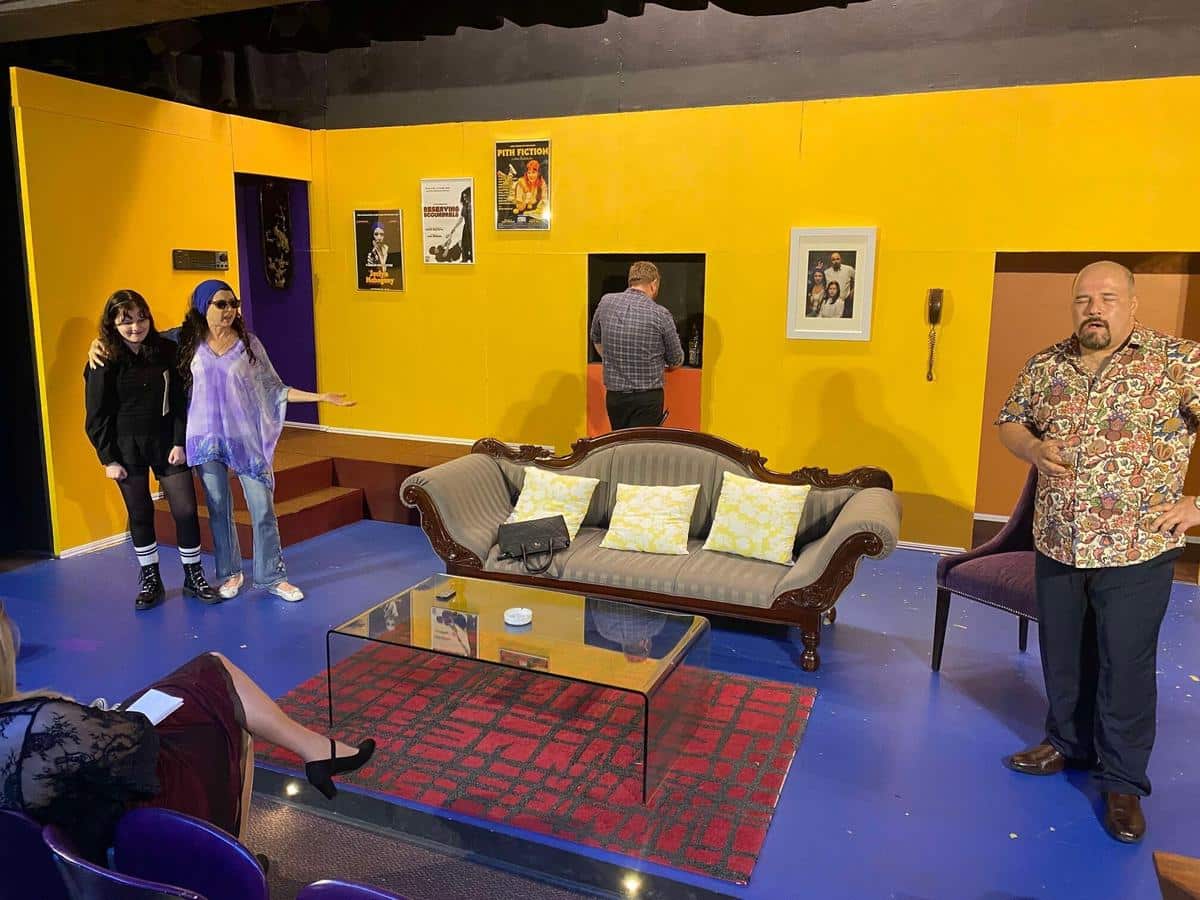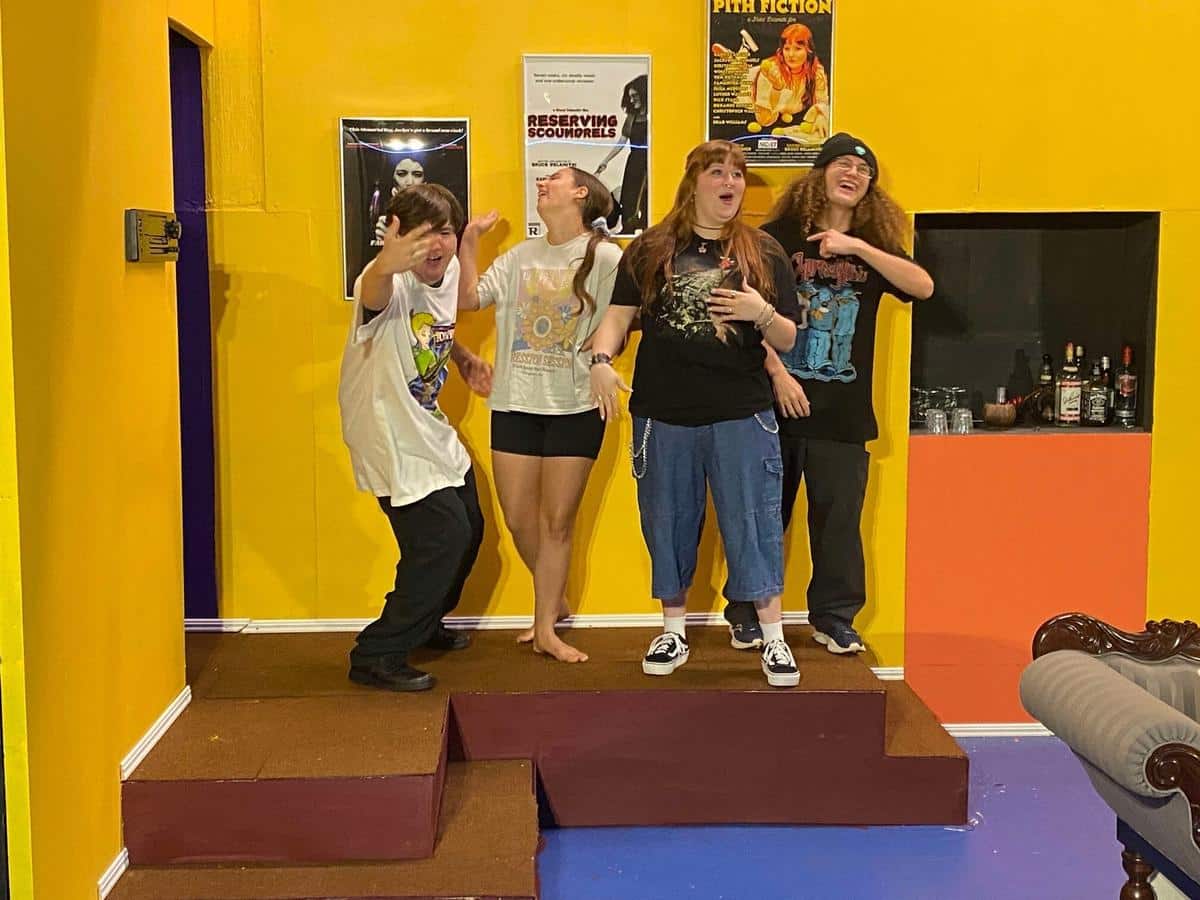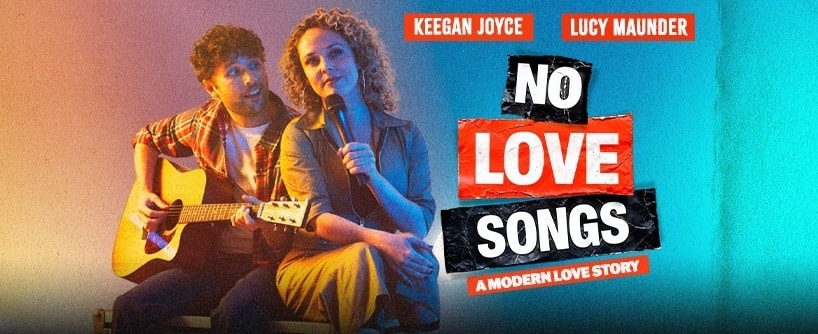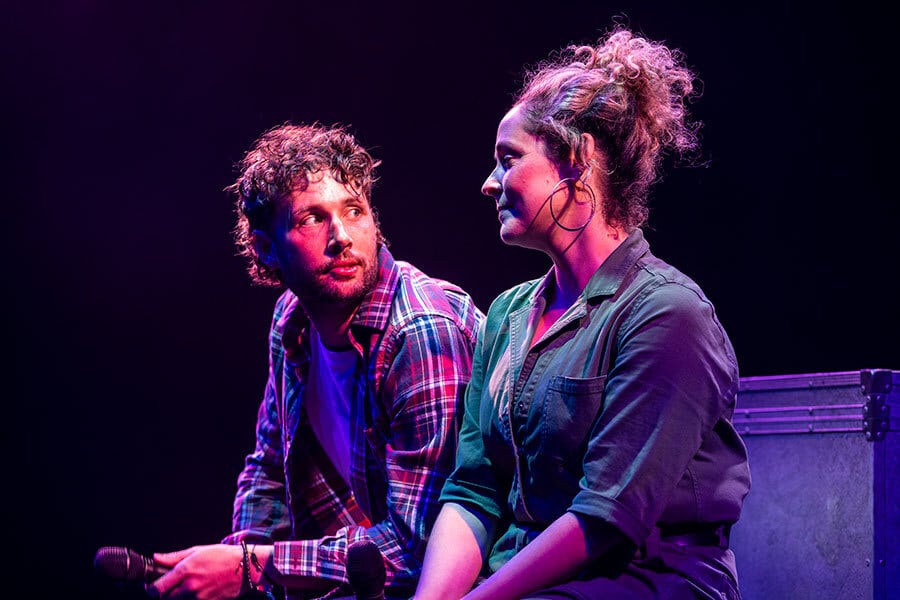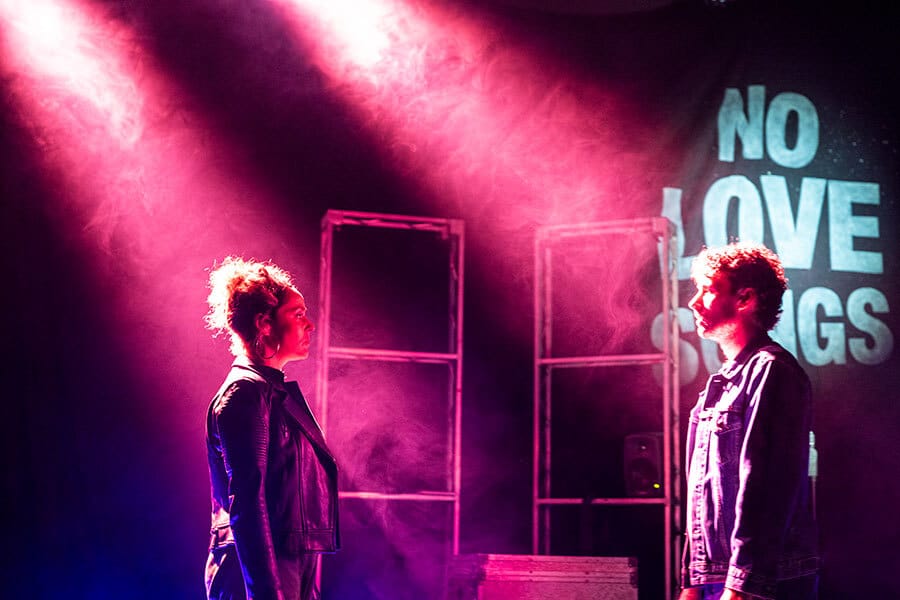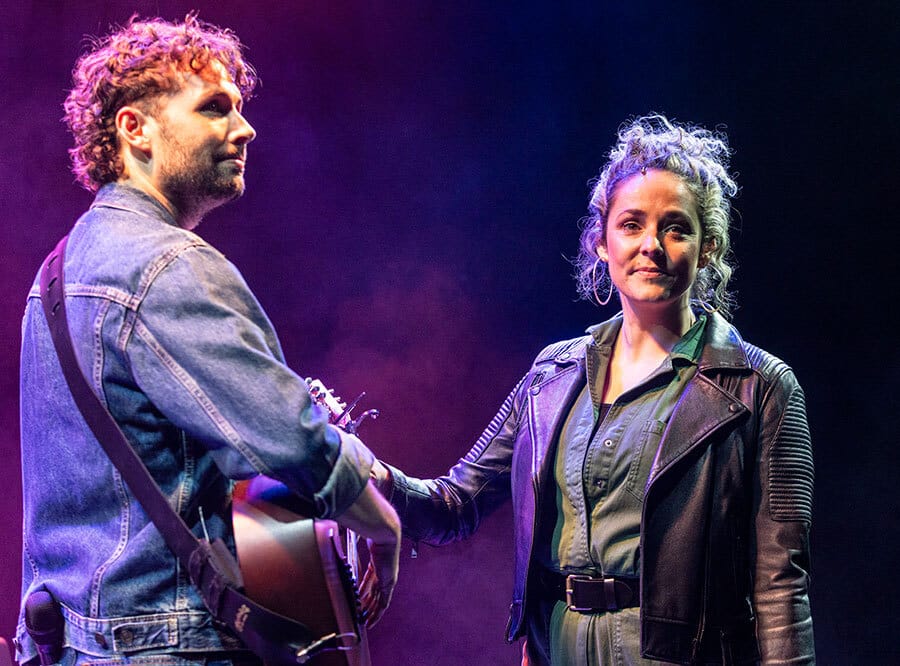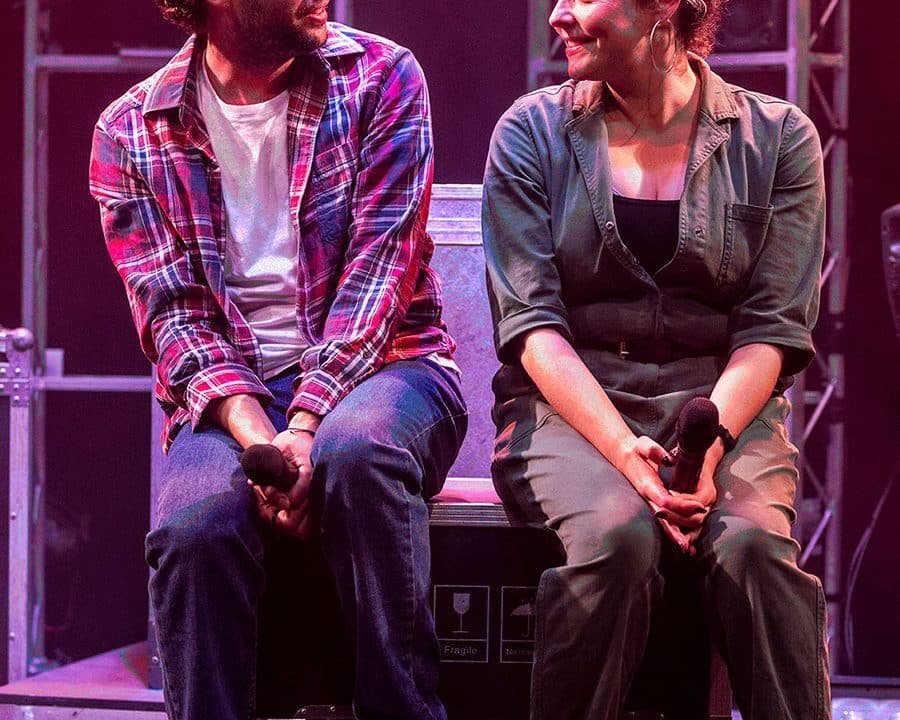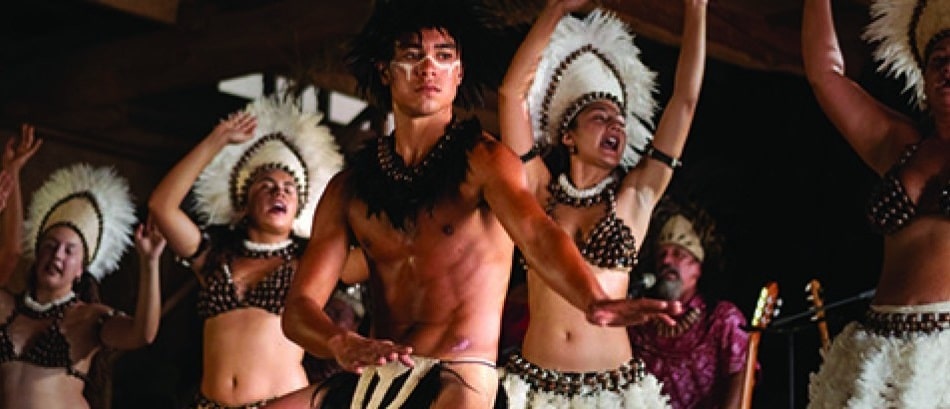F. Scott Fitzgerald’s The Great Gatsby has been adapted into a riveting stage play by Simon Levy, and Vivien Broadbent directed this showing by the Villanova Players.
The set, simple yet elegant, consisted of a wooden balustrade upon some theatre blocks center stage. To the right and left were chaise lounges with layers of blankets, each removed for the relevant scene. Lamps upon side tables complemented the themes well, along with the frequent use of a drinking tray wheeled in and out of scenes.
The costumes, beautifully fitting for the chosen era, made each scene more eye-catching than the last. Actors were adequately styled, pairing 20s-style makeup and hairstyles with amazing dresses, suits, and headdresses. This was especially evident in the party scenes and dance routines, where we saw a lot of movement and expression. The colours, composition, and touch of sequins add a charming flair to each moment.
The jazz singer (Emma Hodis) and short dance routines also added to the show, bringing Gatsby’s parties to life and facilitating transitions between scenes. While some of the routines could use light polishing, the choreography utilized the entirety of the space, creating shapes that engaged the audience. This can be seen in one of the early scenes when Gatsby and Nick are on a plane. Holding the shape of the plane, the dancer’s contribution added fun and flair to the scene. Similarly, they gather around Gatsby’s car in one of the garage scenes. Their use of comic relief helped the audience connect with them and eased some of the tension throughout. It was wonderful to see how the cast was brought together in such a creative and dynamic way.
For those cast in the leading roles, Hayden Parsons (Jay Gatsby), Lachlan Gregory Hugh (Nick Carraway), Hannah Kennedy (Daisy Buchanan), Oscar Kennedy (Tom Buchanan), and Isabelle Arthur (Jordan Baker) had great chemistry. Parsons’ portrayal of Jay Gatsby was highly compelling. He captured the emotional depth and yearning that one would expect from a man awaiting his Daisy—a role that some would find difficult. Parsons made it look effortless, giving a seamless performance.
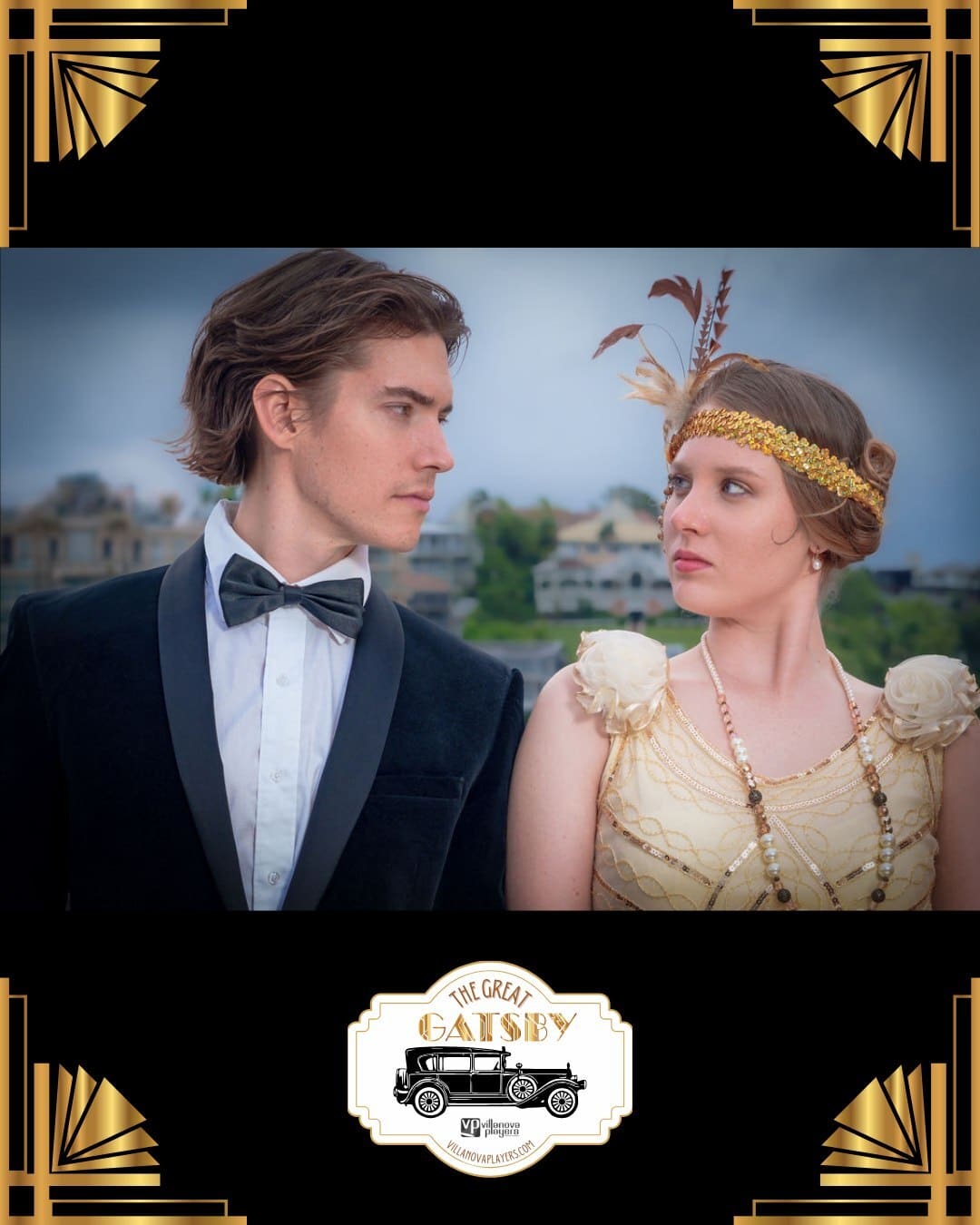
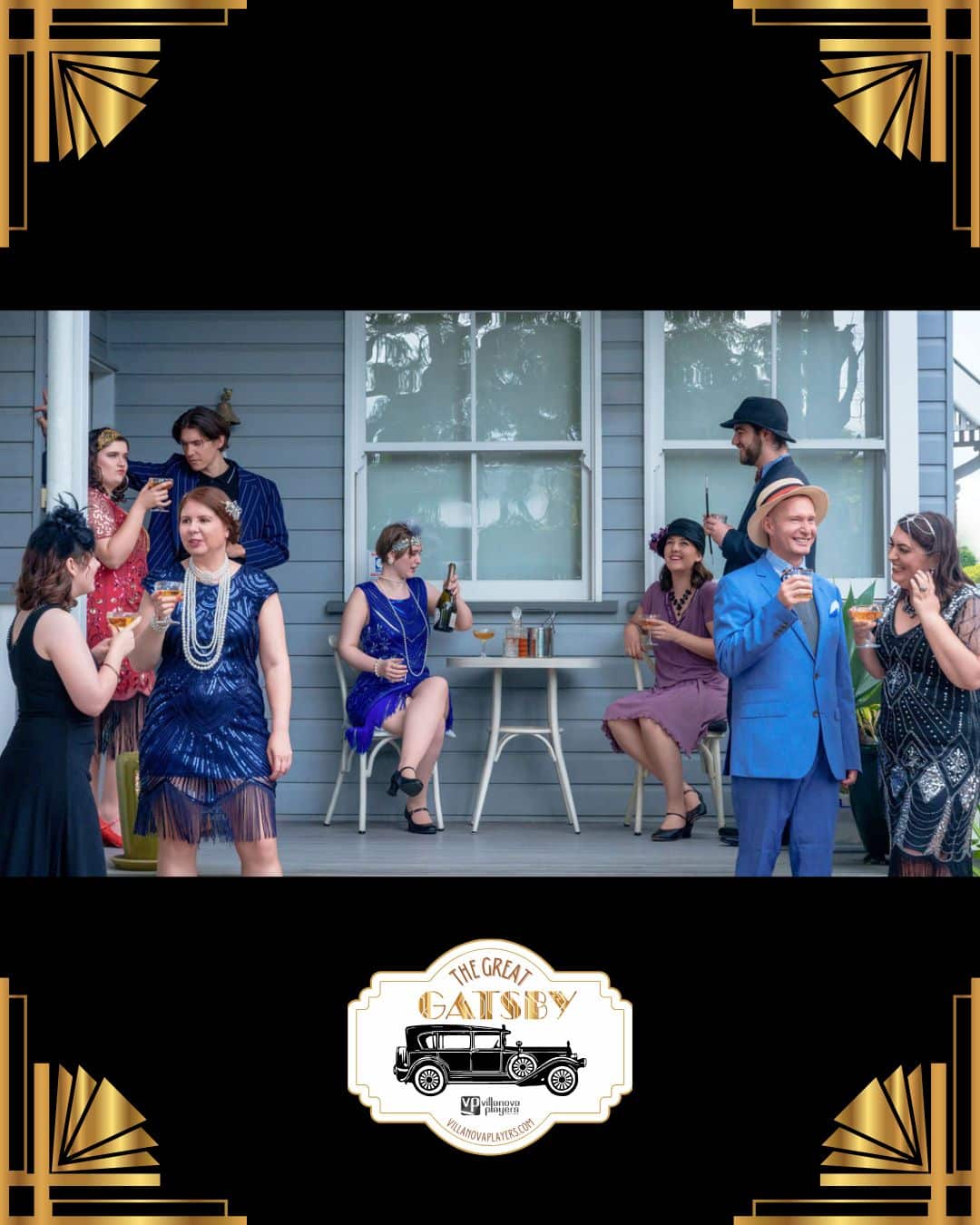

Hannah Kennedy’s perspective of the girl who got away allowed the audience to see the enthused, wistful Daisy in her most raw and honest state. From her mannerisms to the tone of her voice, Hannah also gave an amazing performance, elegantly drawing focus and embracing every scene with grace and professionalism.
The roles of Jordan and Nick were notable, too. The monologues and one-on-one interactions highlighted the emotional layers and inner turmoils they both faced. Hugh’s final monologue was a favourite, elegantly highlighting Nick’s inner struggle as he mourned his friend and grappled with the moral dilemmas he had been swept up in. I am eager to see where Hugh’s career leads, should he pursue it professionally.
Oscar Kennedy’s portrayal of Tom Buchanan was impressive and appropriately conveyed the depth and building tension expected in such a character. At the show’s peak, the confrontation scene between Tom and Gatsby was especially engaging as the pair verbally sparred in front of their friends. The feelings of denial, resentment and turmoil were palpable. I was thoroughly impressed by the way Kennedy explored the highs and lows of Tom’s character and look forward to other works they pursue.
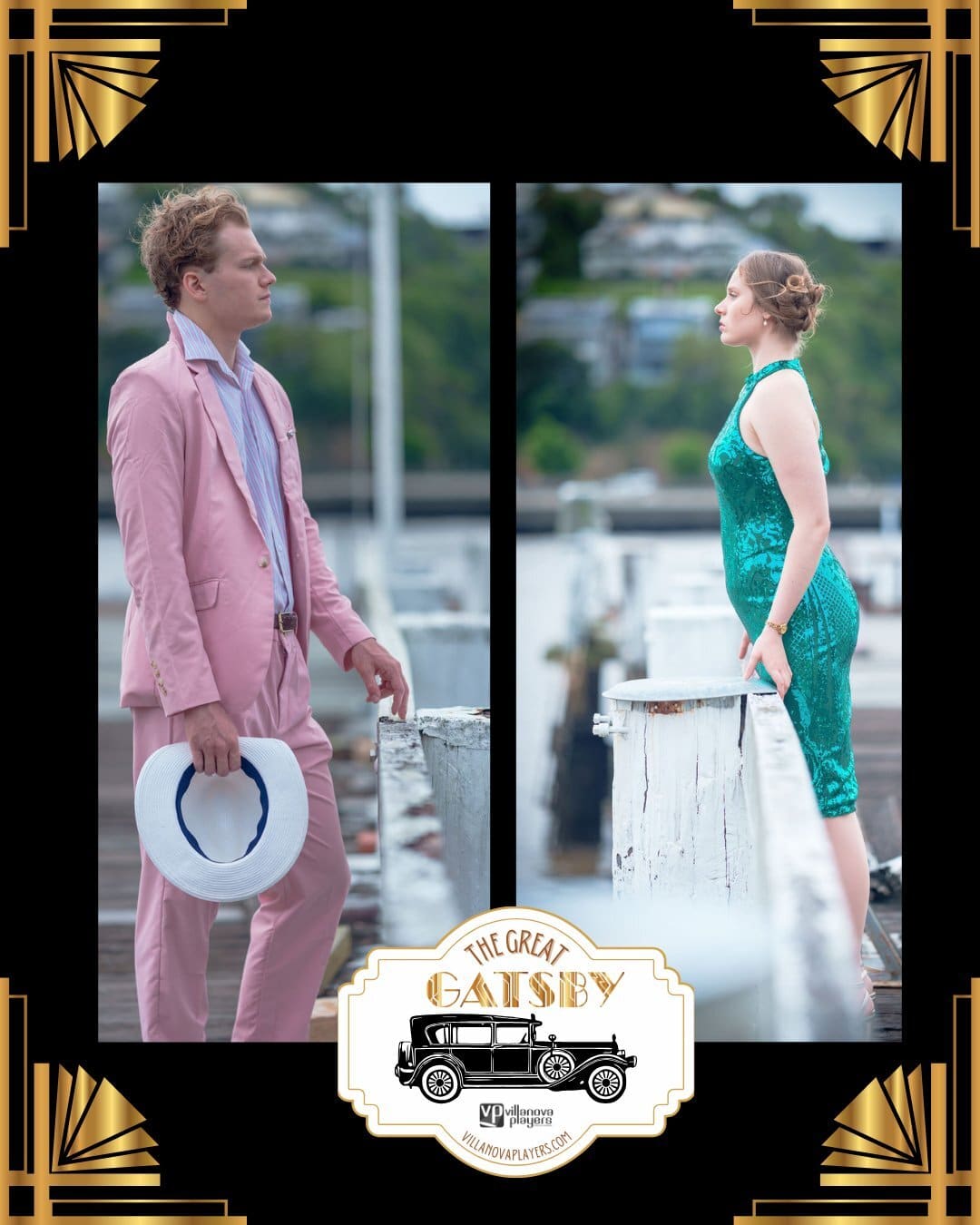
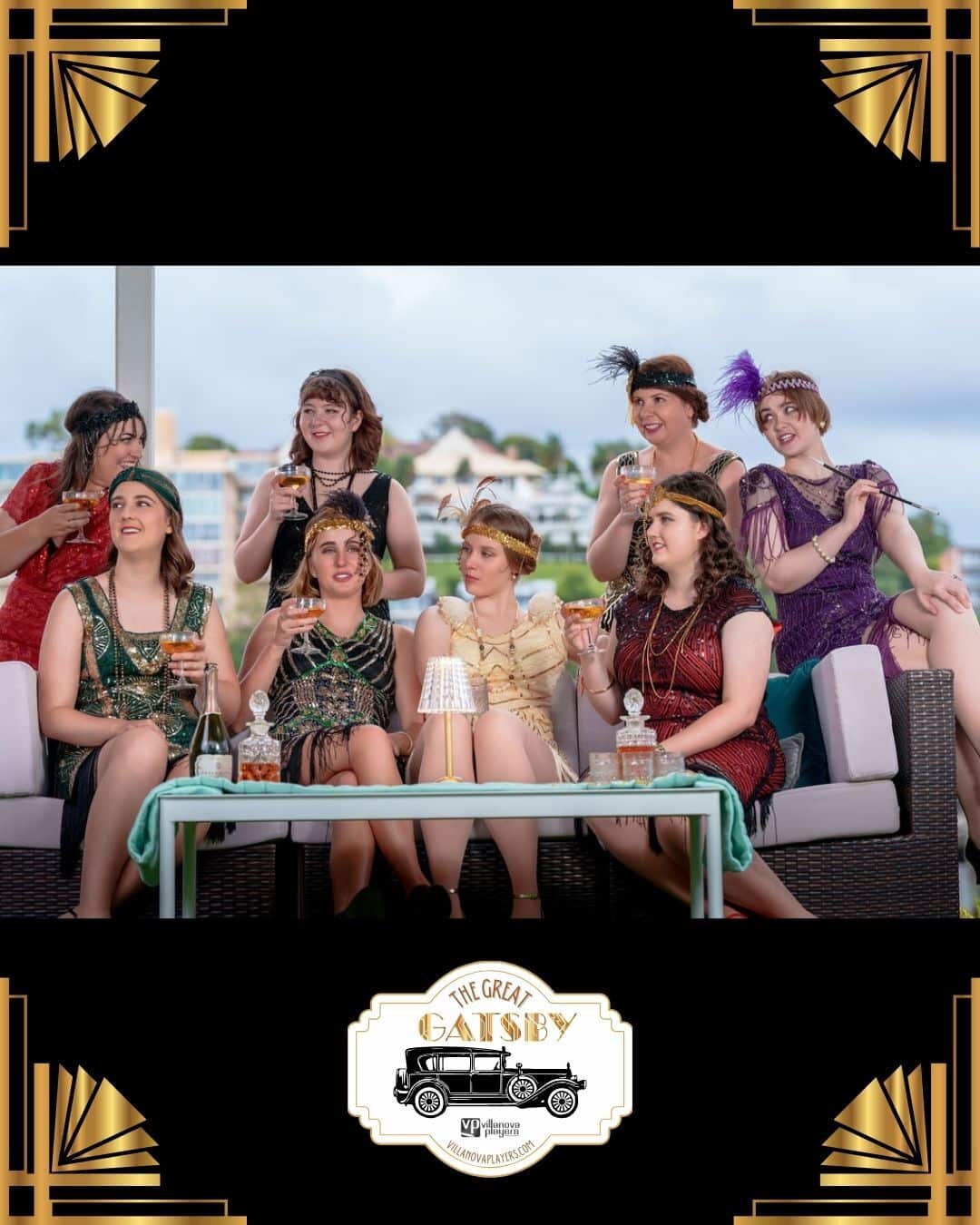
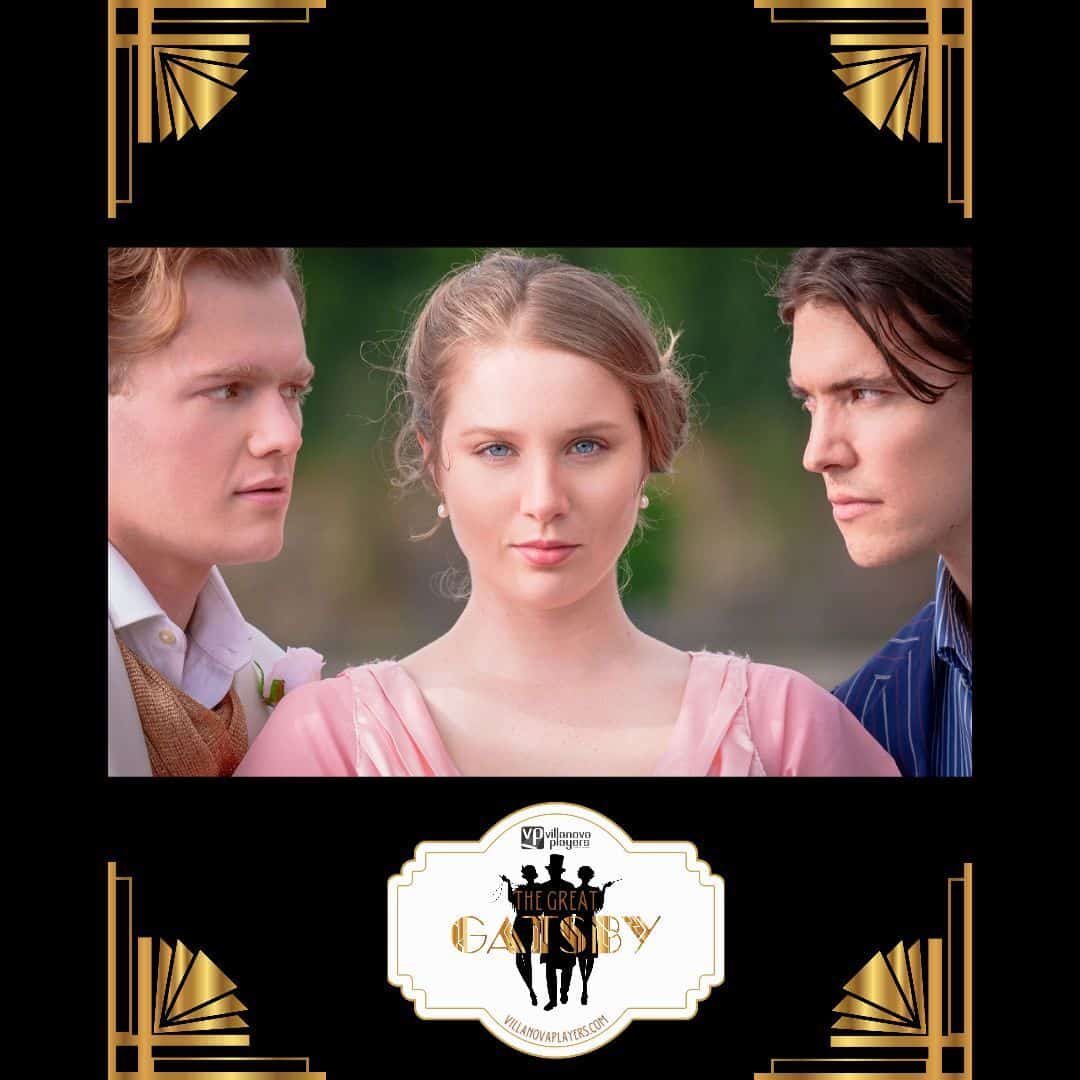
The use of PowerPoint slides proved to be a valuable tool, as the sound and media team used them to supplement scene changes and offer symbolism during monologues. The lighting was appropriately assigned to each scene, aside from what seemed like a momentary blackout during one of the final scenes (the car crash). This scene was also accompanied by sound effects, with the intent to add to the scene. The 911 call recording, however, felt somewhat out of place for the period.
A prior scene, the driving scene in Gatsby’s car, could have benefited from light engine or background sounds, within the knowledge of how loud the cars of the period tended to be. That said, perhaps the director intended the dialogue to be the focus rather than the effects. Overall, the team working behind the scenes did an amazing job and kept up well with the various demands of their roles.
A wonderful night out and a thoroughly enjoyable show that I would recommend for ages sixteen and above, noting some of the few potentially triggering moments (implications of DV, murder and suicide).
Congratulations to the Villanova Players for a fantastic show! The Great Gatsby runs for one more week with sessions:-
- Fri 21st Mar @ 7:30pm
- Sat 22nd Mar @ 2pm
- Sat 22nd Mar @ 7:30pm
- Sun 23rd Mar @ 2pm
To book tickets to The Great Gatsby, please visit https://www.villanovaplayers.com/plays/the-great-gatsby.

